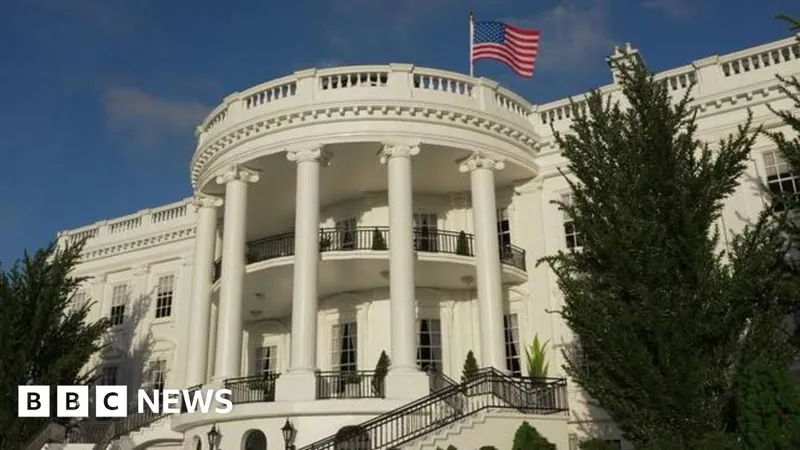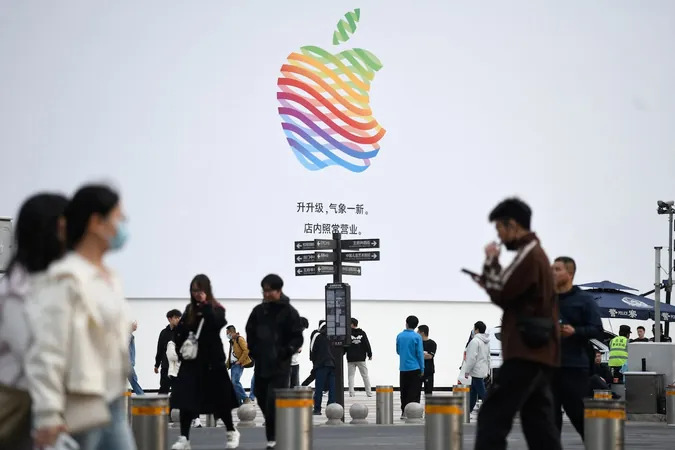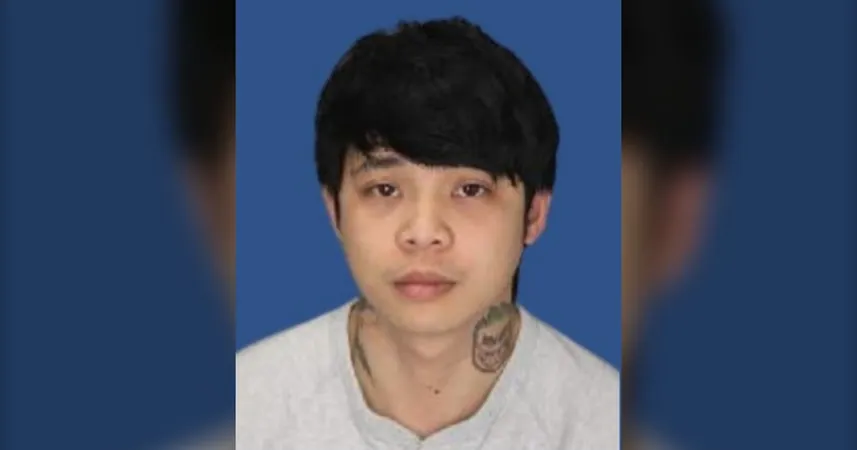
Major Shakeup at NSA: Trump Administration Ousts Top Officials Amid Controversy
2025-04-04
Author: Sophie
In a surprising move, the Trump administration has dismissed General Timothy Haugh, the chief of the National Security Agency (NSA) and US Cyber Command, amidst what appears to be a larger purge of security officials within the agency and the White House. This sudden decision has raised alarms among Democrats, who express deep concerns over potential risks to national security.
The exact reasons behind General Haugh's termination remain unclear; however, it follows a meeting with far-right activist Laura Loomer, during which she reportedly urged President Donald Trump to remove employees who she believed were not supportive of his agenda. Loomer claimed on social media that both General Haugh and his deputy, Wendy Noble, were dismissed for their disloyalty to the President.
While Trump denied any direct influence from Loomer in the firings, he did assert that he would dismiss any staff members deemed disloyal. "We're always going to let go of people... that may have loyalties to someone else," he remarked, hinting at a broader strategy to align his administration with individuals closely aligned with his policies.
The shakeup extends beyond Haugh and Noble. Reports indicate that at least three other officials from the White House National Security Council (NSC) were also let go recently, including Brian Walsh, a director for intelligence; Thomas Boodry, a senior director for legislative affairs; and David Feith, a senior director overseeing technology and national security. The relationship between these firings and those at the NSA remains uncertain.
The controversy surrounding Haugh's termination follows a significant incident involving the NSC last month, where senior officials mistakenly included a journalist in a private messaging thread concerning military operations in Yemen. Although Haugh was not involved in this incident, his recent testimony before Congress regarding the leak has drawn scrutiny.
Sources have indicated that the Signal messaging incident has opened the door for a review of staff deemed insufficiently loyal to Trump, which could have contributed to the decisions made. Loomer’s meeting and subsequent recommendations allegedly played a crucial role in the outcomes for those who were fired.
As the fallout continues, one thing is clear—internal dynamics within the Trump administration's national security apparatus are shifting dramatically. Loomer, in her statements, emphasized her commitment to supporting Trump's agenda, particularly on issues of national security and vetting procedures.
This significant personnel change signals a growing trend within the administration to prioritize loyalty and alignment with the President’s vision, raising questions about the implications for informed, cautious national security strategies at a time when the country faces pressing global threats. The future actions of newly appointed or promoted personnel within these critical agencies remain to be seen, but the focus on loyalty over experience could lead to unpredictable outcomes in national security policy.
As this story unfolds, many will be watching closely to see how these changes will affect the U.S.'s stance on cybersecurity and national security in a rapidly evolving geopolitical environment. Stay tuned for more updates on this breaking story!









 Brasil (PT)
Brasil (PT)
 Canada (EN)
Canada (EN)
 Chile (ES)
Chile (ES)
 Česko (CS)
Česko (CS)
 대한민국 (KO)
대한민국 (KO)
 España (ES)
España (ES)
 France (FR)
France (FR)
 Hong Kong (EN)
Hong Kong (EN)
 Italia (IT)
Italia (IT)
 日本 (JA)
日本 (JA)
 Magyarország (HU)
Magyarország (HU)
 Norge (NO)
Norge (NO)
 Polska (PL)
Polska (PL)
 Schweiz (DE)
Schweiz (DE)
 Singapore (EN)
Singapore (EN)
 Sverige (SV)
Sverige (SV)
 Suomi (FI)
Suomi (FI)
 Türkiye (TR)
Türkiye (TR)
 الإمارات العربية المتحدة (AR)
الإمارات العربية المتحدة (AR)